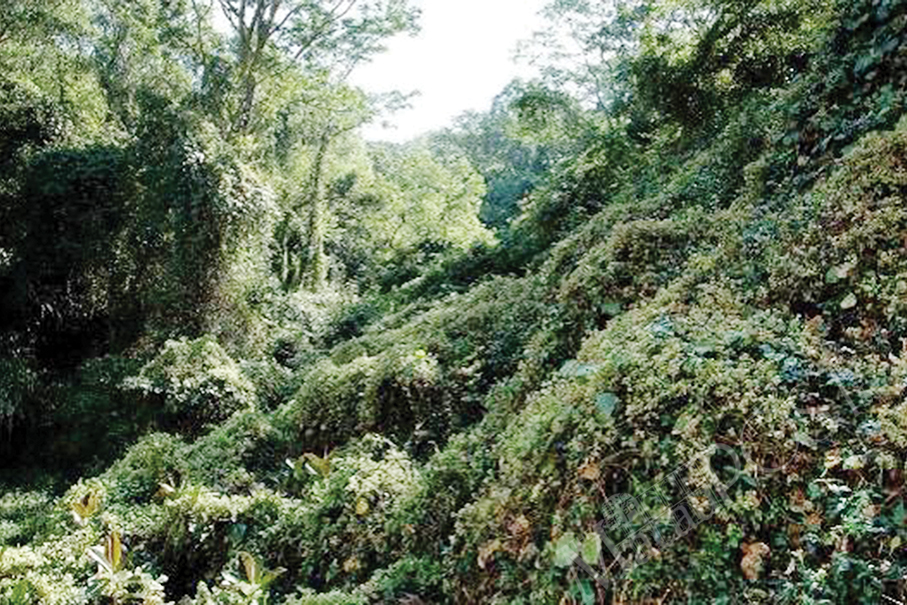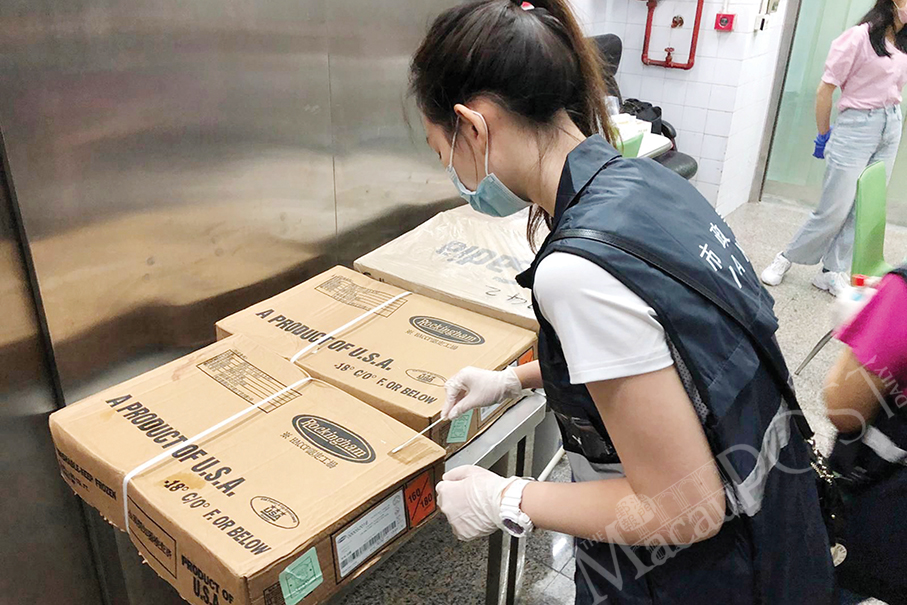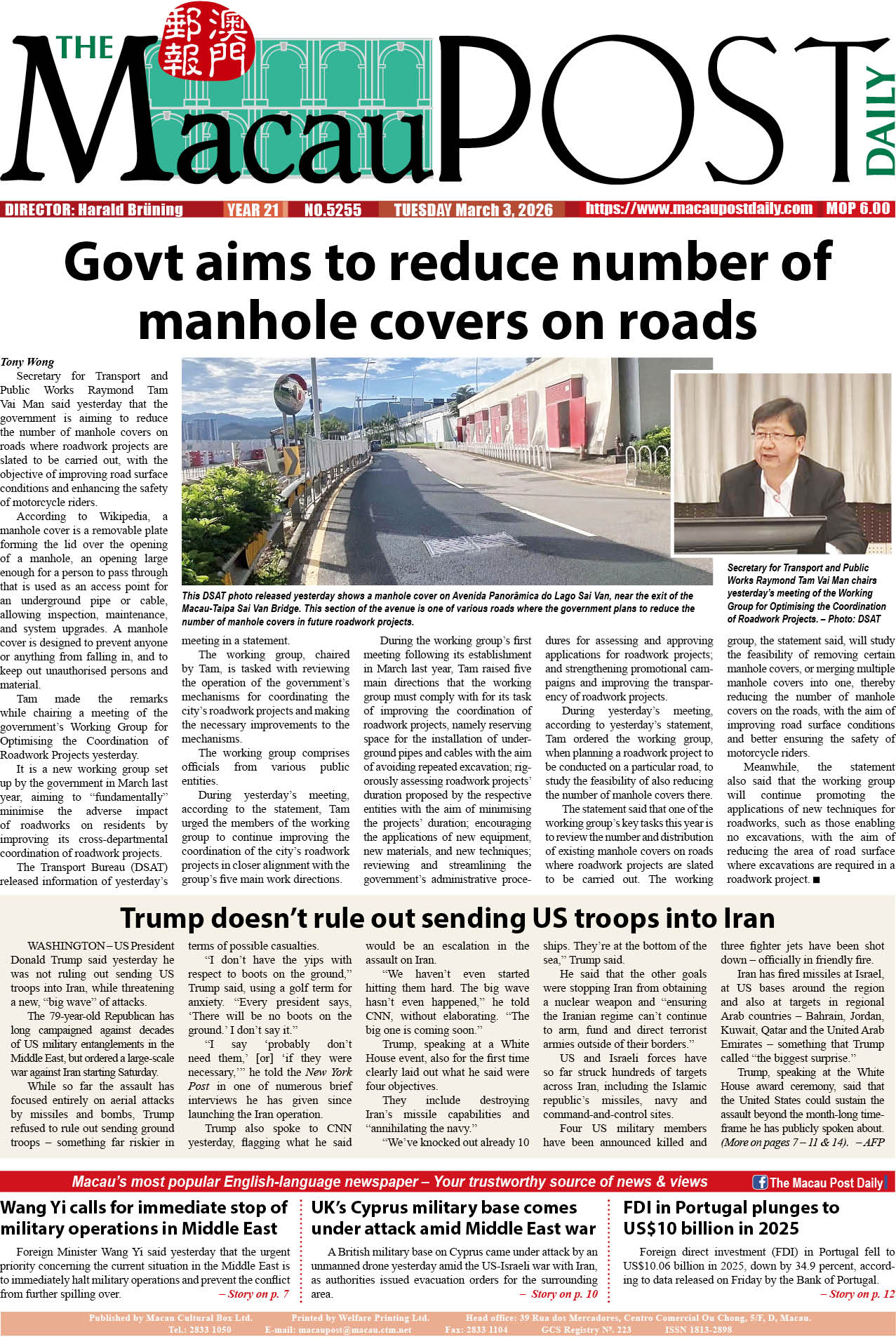Interview by William Chan
Paul A. Van Dyke, an adjunct professor at the Centre for Macau Studies (CMS), donated 50 items of tourist and promotional literature focusing on Canton, Hong Kong, and Macau to the University of Macau (UM) library. The donation ceremony took place yesterday morning at the university, showcasing multiple items of literature donated by Van Dyke.
Canton is the old Western name of Guangzhou, the capital city of Guangdong Province.
Agnes Lam Iok Fong, the director of the Centre for Macau Studies, introduced the literature during the ceremony and expressed gratitude to Van Dyke. The library also presented Van Dyke with a certificate of appreciation.
Following the ceremony, Van Dyke spoke to the Post, briefly discussing his collections. He mentioned that he started acquiring various related books 20 years ago, primarily through online sources, where they were then still affordable and accessible. However, in the last decade, he noted that many Chinese individuals began purchasing these books in bulk, leading to significantly higher prices and making them less accessible to the general public.
Van Dyke revealed some intriguing facts he discovered in the books. In addition to cliché tourist destinations like areas of interest, he pointed out that one of the popular tourist attractions in Canton is the erstwhile execution site. “Foreigners are often curious and fascinated by these violent events from ancient times.” Another interesting topic he mentioned was the Imperial Examination, where tourist books documented the time and location of such exams, allowing foreigners to watch them.
The donation ceremony coincided with the first symposium on the “Intersecting Histories of the Greater Bay Area (1820 - 1940).” Van Dyke, one of the keynote speakers, presented his research findings, which covered a wide range of topics, including ethnicity, business histories, biographies, tourism, and currency exchanges.
Van Dyke also discussed the challenges he encountered when using AI technology for historical research. “While AI is convenient, it sometimes fails to recognise rare words.” For instance, he pointed out that the word “anfião,” meaning opium in Portuguese in the past, was not understood by AI-driven chat bots.
According to the Museu Virtual da Lusofonia*, “anfião” is derived from the Arabic “afiun,” with the Greeks naming it opium. Anfião is a substance derived from the gum that grows in places like Cambay, with different varieties, including the prized and expensive type from Cairo.
Van Dyke emphasised the usefulness of computers in analysing research documents, particularly in identifying the frequency of specific terms used. He cited various year-specific terms from his research, such as “africano” from 1837, “assassinato” (“murder”) from 1844, and “correios” (“post”) from 1857, each offering implications for further research. He expressed the hope that his donation would contribute to advancing interesting research in the future.
Canton, Hong Kong, Macau
Liu Zhiwei, a history professor at Sun Yat-sen University, discussed the term “省港澳” (Shěng Gǎng Ào) [transliteration: (Canton) province, Hong Kong, Macau], noting that the more commonly used term nowadays is “粤港澳” (Yuè Gǎng Ào), which has a similar transliteration. Liu highlighted that the significance of “省港澳” (Shěng Gǎng Ào) denoted the interconnectedness of Canton, Macau, and Hong Kong in the past, each serving a distinct function. He mentioned that Canton functioned as the administrative area, while Hong Kong and Macau served as ports and harbours.
Liu further explained that people working in these regions often travelled to all three cities for trade and business several decades ago. These cities shared similar cultural aspects in terms of culinary practices, entertainment, and language. Despite their closer proximity, individuals from Foshan and Zhongshan have a fairly distinct accent from Macau, primarily due to Macau’s historical ties with Canton.
John D. Wong, the associate dean of the Faculty of Arts at the University of Hong Kong, focused on the shifting geopolitical landscape of the three regions. He particularly emphasised the immigration patterns in Hong Kong, including restrictions on cross-border traffic and the implementation of entry and exit permits for the province of Guangdong. Wong referenced terms like “freedom swimmers,” which alluded to individuals attempting to swim to Hong Kong from mainland China, and highlighted the impact of the creation of the Shenzhen Special Economic Zone (SEZ) on the dynamic between Hong Kong and the mainland.
Following lunch, the group engaged in thematic discussions on related issues and concluded the event with a tour of the library.
*https://www.museuvirtualdalusofonia.com/glossario/anfiao/#:~:text=palavra%20derivada%20do%20%C3%A1rabe%20afiun,apreciado%20e%20o%20mais%20caro .

Paul A. Van Dyke, an adjunct professor at the Centre for Macau Studies, gives a keynote speech yesterday morning. - Photo: Alex Kot

Agnes Lam Iok Fong, the director of the Centre for Macau Studies, delivers a speech at the opening ceremony yesterday morning. – Photo: Alex Kot






Books donated by Paul A. Van Dyke are presented at the Centre for Macau Studies (CMS) at the University of Macau (UM) yesterday. – Photos: William Chan








